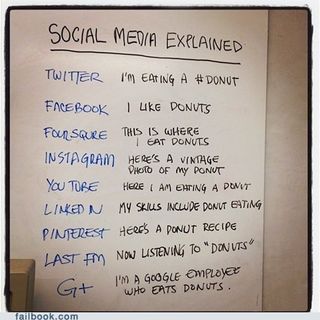As much as I love the ability to connect with current practitioners and other smart folks around innovative and interesting ideas in education, we have a wealth of knowledge that lives in the recent and more distant past that is often overlooked. The bombardment of “new” through current media offerings tends to overshadow the truths that have been shared, considered and proven over decades and centuries.
When it comes to understanding media and communications, there are no better thinkers out there than Neil Postman and Marshall McLuhan. If you’re reading this and have never heard of these men, I would highly encourage you to seek out their writings.
I just finished re-reading Amusing Ourselves to Death, Postman’s critique of the impact of television on our world.
‘What Orwell feared were those who would ban books. What Huxley feared was that there would be no reason to ban a book, for there would be no one who wanted to read one.‘
I suppose some might not be able to see the connection between television and the Internet and while there certainly are differences, I found the parallels to be glaring. Without doing a full review here, I simply wanted to focus on one of his major points. He looks specifically at the way TV news is primarily entertainment and journalism is secondary at best.
No matter where you look today, the pace at which news is delivered, the emphasis on sensationalism and the sheer numbers of outlets, has turned important information and conversations into banal and destructive natterings. Postman might have suggested the same thing with television but the Internet, like it is want to do, has amplified this.

Postman didn’t have a problem with TV being a platform for entertainment. He thought it was well suited to make people laugh and be amused. His argument was that it was not a format designed for serious topics that required depth and time. Although I didn’t have the context I made a similar argument about social media. That post is almost 10 years old. It’s only magnified in truth today. The places (Twitter mostly) I valued as a place to get to know people has turned into a dumping ground for soundbites and flawed opinions. In general, I don’t think people are smarter or more informed and part of the current polarization and divisions in our world are a direct result of social media. Its benefits for me lie in knowing more folks and finding other spaces to do meaningful work.
[Bad PD is Sometimes Your Own Fault]
As someone who embraced social media early on, I was able to see what it could do to benefit our world. I wasn’t oblivious to the downsides but encouraged its use as a way to connect to smart people. Blogging was a way to provide a voice to anyone with an internet connection. I still see it as a potential space for deeper thought, however, long-form blogging, in particular, is not all that popular. If I was smart enough, I might even be able to determine how many folks clicked on this link and how many have made it this far. <insert joke/fact about how my writing isn’t engaging enough> Today I’m much less enthusiastic about the potential of these spaces and Postman’s writing has unfortunately fostered less hope. We are much more interested in amusement than truth. This is not a conscious decision as Postman argues but rather as a result of the nature of these mediums.
“Our politics, religion, news, athletics, education and commerce have been transformed into congenial adjuncts of show business, largely without protest or even much popular notice. The result is that we are a people on the verge of amusing ourselves to death.” Neil Postman, Amusing Ourselves to Death: Public Discourse in the Age of Show Business
Trying to be a truly informed citizen today is almost impossible. As an educator, this is where we have an enormous challenge. My work and presentations have me dabbling at this and yet being frustrated by the cultural tsunami of trite, bias and untruths bites that flood our feeds.
“Television is altering the meaning of ‘being informed’ by creating a species of information that might properly be called disinformation. Disinformation does not mean false information. It means misleading information – misplaced, irrelevant, fragmented or superficial information – information that creates the illusion of knowing something, but which in fact leads one away from knowing.” Neil Postman, Amusing Ourselves to Death: Public Discourse in the Age of Show Business
Swap “Television” for “Social Media” and I think it’s still true.
At this point I have a couple of personal responses that I’m trying to deploy:
- Talk less. I’m not likely to engage in any type of political discussion or even important educational conversations on social media.
- Question everything. No matter what perspective or bias, assume it’s likely false. Hold your opinions until you’ve taken the time to investigate.
- Utilize the right spaces for the right purposes. Social media, in my view, has always been best to socialize. This space has always been best to think out loud. Face to face extended times with the right people can be fruitful places for deeper discussions.
I’d encourage you to read something with some historical context because as much as we see the current age as so new, smart folks like Postman saw this coming a long time ago.
“To be unaware that a technology comes equipped with a program for social change, to maintain that technology is neutral, to make the assumption that technology is always a friend to culture is, at this late hour, stupidity plain and simple.” Neil Postman, Amusing Ourselves to Death: Public Discourse in the Age of Show Business
cross-posted at ideasandthoughts.org
Disclaimer: This weblog contains the opinions and ideas of Dean Shareski. While there may be references to my work and content which relates directly to my work, the ideas are mine alone and are not necessarily shared by my employer.
Dean Shareski is the Community Manager of the Canadian DEN (Discovery Educators Network) and lecturer for the University of Regina. With 24 years of experience as a K12 educator and consultant, he specializes in the use of technology in the classroom. Read more at ideasandthoughts.org.

